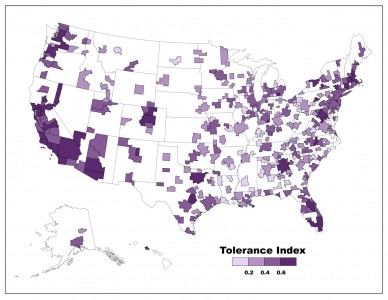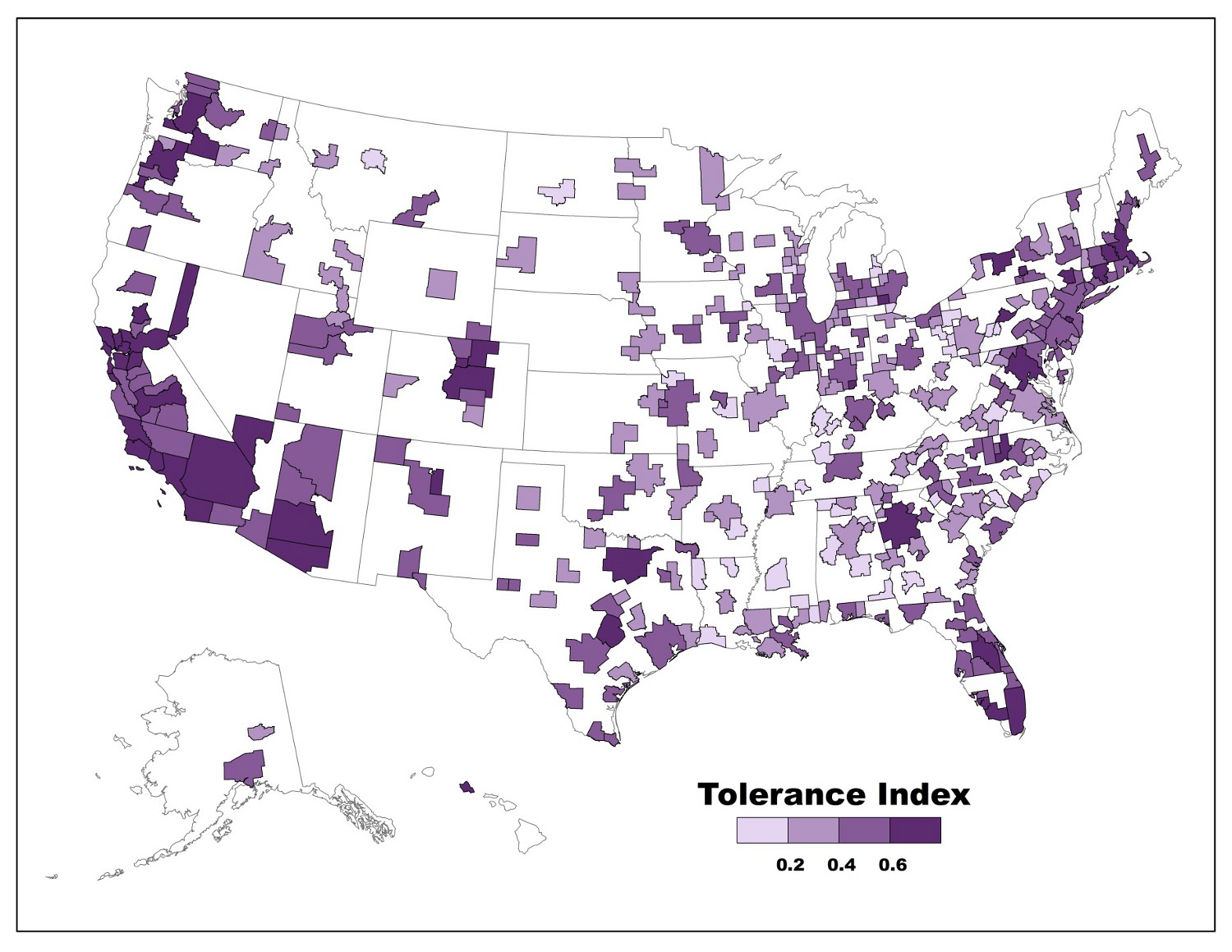 A decade ago, urban studies theorist Richard Florida made headlines with his book, The Rise of the Creative Class. In a nutshell, Florida looked at communities across the U.S. that encouraged creativity and showed how they sat at the forefront of a changing economic model.
A decade ago, urban studies theorist Richard Florida made headlines with his book, The Rise of the Creative Class. In a nutshell, Florida looked at communities across the U.S. that encouraged creativity and showed how they sat at the forefront of a changing economic model.
Now, Florida — who’s since become an editor at The Atlantic — has turned his attention to another defining characteristic of American communities: tolerance. In a study published earlier this week, Florida discusses the importance of tolerance in creating vibrant cities: “Places that are open to new ideas attract creative people from around the globe, broadening both their technology and talent capabilities, gaining a substantial economic edge.”
Not surprisingly, Florida prioritizes tolerance of the LGBT community. Here’s a key paragraph from the article in The Atlantic:
Openness to gays and lesbians similarly reflects an ecosystem that is open to new people and new ideas. It’s amazing how consistently people have misconstrued what my colleagues and I have had to say about the connection between gays and economic growth. They miss the point. A strong and vibrant gay community is a solid leading indicator of a place that is open to many different kinds of people. Ronald Inglehart, who has studied the relationship between culture and economic growth for some four decades, has noted that the lack of societal acceptance of gays is the most significant remaining bastion of intolerance and discrimination around the world. Accordingly, communities that have long been more accepting and open to gay people have an underlying ecosystem which is also more likely to be accepting of new ideas and different types of people, including the eggheads and eccentrics who invent new things and start new enterprises. As Bill Bishop put it, “where gay households abound, geeks follow.”
With his study, Florida published a “tolerance index” — basically, a map of the U.S., shaded by tolerance levels. As you might expect, “blue states” like California and Massachusetts score well on the index, but so do places you might not anticipate, like Texas.
Have a look at the map above (and if you have time, check out the full article). How does your hometown rate on Florida’s tolerance index? How about your favorite vacation spot? Does tolerance affect your travel decisions? Our informal office poll says “hell, yes”, but feel free to let us know your thoughts in an email or in the comments below.
[via Joe.My.God]
